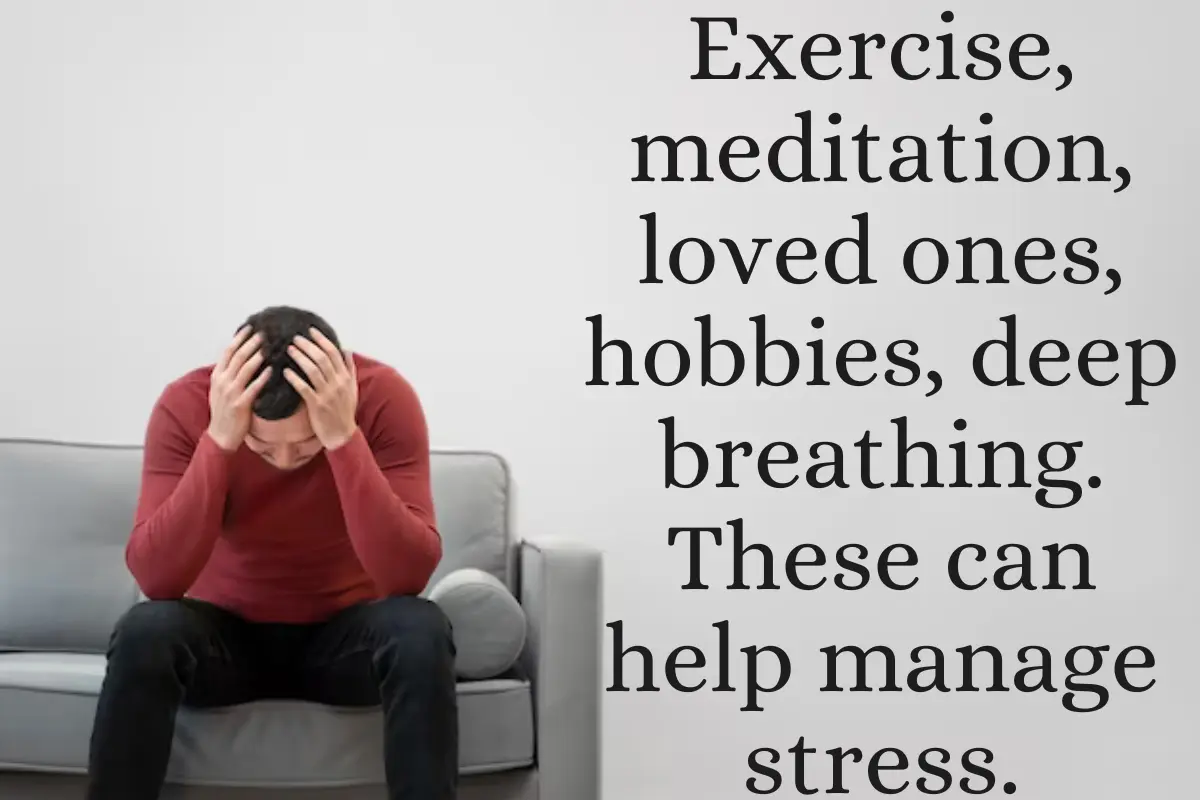Introduction.
Amidst the relentless whirlwind of contemporary existence, Stress remains an unwavering companion. In our quest for refuge from this relentless chaos, an array of theories and methodologies for managing stress have emerged. Effectively navigating this intricate domain necessitates scrutinizing data to distinguish veracity. This discourse delves into human tendencies and presents strategies for stress alleviation that can endure meticulous examination. It scrutinizes the veracity of numerous widely accepted assertions concerning Stress management.
In the realm of relaxation techniques, we encounter progressive muscle relaxation, mindfulness meditation, and deep breathing exercises, each wielding the potential to ameliorate stress. These practices serve to invoke the relaxation response within the corporeal and cognitive domains, thereby mitigating the deleterious effects of stress. By incorporating these methods into your daily routine, you can embark on a journey towards equilibrium.
 Sources of stress
Sources of stress
There are various sources of stress in life, and they can be categorized into different areas. Here are some common sources of stress:
1. Work-related Stress:
- Heavy workload
- Job insecurity
- Pressure to meet deadlines
- Conflicts with colleagues or supervisors
2. Personal Relationships:
- Marital or relationship issues
- Family conflicts
- Parenting challenges
- Loss of a loved one
3. Financial Stress:
- Debt and financial instability
- Unexpected expenses
- Job loss or financial insecurity
4. Health-related Stress:
- Personal illness or injury
- Chronic health conditions
- Caring for a sick family member
4. Life Transitions:
- Moving to a new location
- Starting or changing careers
- Going through a divorce or breakup
5. Environmental Stressors:
- Natural disasters
- Pollution or environmental concerns
- Safety and security issues
6. Daily Hassles:
- Traffic and commute
- Technology-related stress (constant notifications, social media)
- Time pressures and multitasking
7. Personal Expectations:
- Perfectionism
- Unrealistic goals
- Self-criticism
8. Global and Societal Stressors:
- Political instability
- Economic crises
- Social injustices and conflicts
It’s vital to word that individuals may also enjoy pressure from a mixture of these sources, and what one person finds annoying, every other may not.
Recognizing and expertise those sources of strain is step one in powerful pressure control. Strategies for coping with strain can vary relying at the particular source and its effect on an person’s lifestyles.
Understanding Stress
Stress is Inevitable
Primarily, it is imperative to grasp that stress represents an inherent reaction to intricate circumstances. It is a facet of existence that we all inevitably confront, and it cannot be entirely eradicated from our existence. Nevertheless, what lies within our control is our method of response to it.
Several reasons contribute to the inevitability of stress:
1. Life Uncertainties: Life is unpredictable, and unexpected events, both positive and negative, occur regularly. These can include job changes, relationship issues, health concerns, or even exciting opportunities. Regardless of their nature, these changes often bring about stress as we navigate the unknown.
2. Biological Reflex: Anxiety manifests as an innate physiological retort to the perception of impending perils or formidable challenges. When our cognitive faculties interpret a situation as demanding or potentially perilous, it engenders the “fight-or-flight” reaction, prompting the release of anxiety-inducing hormones such as cortisol and adrenaline. This response is intricately ingrained within our biological framework as an evolutionary mechanism for our preservation.
3. Intrinsic Disparities: The threshold for anxiety and the specific stimuli that incite it can exhibit substantial variances among individuals. What may elicit anxiety in one person may remain imperturbable to another. These innate disparities render the pursuit of total anxiety evasion a formidable undertaking, for the origins of anxiety are imbued with subjectivity.
4. Intricate Societal Forces: Contemporary society is characterized by an existence lived at an accelerated tempo, soaring anticipations, and unceasing interconnectedness. These multifaceted influences can conduce to the protraction of chronic anxiety, rendering the prospect of evading stressors an undertaking bordering on the implausible.
Stress can be Positive or Negative
Notably, not all forms of stress are detrimental. There exist two distinctive categories of stress: eustress and distress. Eustress, often denoted as “constructive stress,” possesses the capacity to invigorate and propel us forward. In contrast, distress, termed as “adverse stress,” can prove injurious to both our physical and psychological well-being.
Absolutely, stress can be categorized as either positive or negative, depending on how it affects an individual. Let’s explore both aspects:
1. Positive Stress (Eustress):
- Eustress refers to beneficial or positive stress. It can be motivating and energizing.
- Eustress often arises from situations that challenge and stimulate individuals without overwhelming them.
- It can enhance performance, creativity, and personal growth. For example, the stress of preparing for an important presentation can push someone to excel.
 2. Negative Stress (Distress):
2. Negative Stress (Distress):
- Distress is the form of pressure that most people typically accomplice with the term. It is harmful and can have adverse consequences on mental and physical fitness.
- Distress arises from situations that exceed an man or woman’s capacity to manage successfully, main to emotions of hysteria, helplessness, and weigh down.
- Chronic misery can cause diverse fitness issues, together with tension disorders, melancholy, and physical illnesses.
The key distinction between eustress and distress lies in their effect and duration. Eustress is typically quick-time period and achievable, even as distress tends to be extended and debilitating. The way an man or woman perceives and responds to stress plays a huge role in determining whether it will become superb or bad.
Effective pressure management includes spotting the resources of stress, growing coping strategies, and harnessing eustress whilst minimizing misery. This balance is essential for retaining overall properly-being and attaining private and expert dreams.
The cornerstone of stress management lies in the diversification of coping mechanisms.
Herein, we explore a repertoire of efficacious techniques:
- Identify and Confront Stressors: Discern the situations, occurrences, or concepts that precipitate stress.
- Employ Relaxation Techniques: Embrace calming methodologies such as profound breathing, yoga, meditation, and progressive muscle relaxation. These practices foster stress reduction and usher in serenity of both body and mind.
- Uphold a Fit Lifestyle: Prioritize sufficient rest, regular exercise, and a nourishing diet. A resilient physique is better equipped to combat stress.
- Time Mastery: Establish realistic objectives, prioritize your agenda, and segment it into manageable fragments. Effective time management mitigates the sensation of haste and overwhelm, thereby diminishing stress.
- Engage in Pastimes and Pursuits: Participate in activities that grant you solace and joy, such as sketching, music composition, or literary exploration.
Statement 1:
Risky and best avoided:
Contrary to prevailing belief, stress does not invariably yield adverse repercussions. Stress is, in fact, an evolutionary response that once held paramount significance for human survival. Ancestors adeptly navigated perilous predicaments through stress-induced “fight or flight” reactions. Nevertheless, protracted exposure to chronic, unrelenting tension can detrimentally impact one’s well-being. Recognizing stress as an inherent response, mastery in its proficient handling fosters psychological well-being.
Statement 2:
A universal approach to stress management is nonexistent.
In reality, stress management is a deeply individualized endeavor, contingent upon disparate personality traits, coping mechanisms, and life circumstances. What proves efficacious for one may not hold true for another. The pursuit of stress management often amalgamates diverse techniques, including exercise, mindfulness, relaxation methodologies, and consultations with peers, family, or professionals. It is imperative to discern the approach that resonates most profoundly with your unique disposition.
Statement 3:
Evading stressful circumstances is not the panacea for stress management.
While evading demands may appear tempting, protracted avoidance is an unwise course of action. Maturation and personal advancement necessitate confronting and mastering life’s stressors. The crux of effective stress management lies in adopting coping mechanisms that empower individuals to face challenges with adaptability and resilience, rather than perpetually side stepping them.
Statement 4:
Positive thinking alone does not serve as the optimal stress-reduction strategy.
Positive thinking, despite its merits, does not possess the enchanting power to instantaneously assuage stress. Genuine negative emotions may become suppressed through unwavering positivity. A more balanced approach involves acknowledging and addressing distressing emotions while concurrently cultivating optimism.
Effective stress management entails a comprehensive strategy that juxtaposes a pragmatic appraisal of stressors with a sanguine outlook.
Statement 5:
Medication is not the sole recourse for stress management.
Although medication can aid in managing stress symptoms, it does not constitute the sole remedy. The term “stress management” encompasses a wide array of tactics, encompassing cognitive-behavioral approaches, relaxation practices, and lifestyle alterations. These methodologies aim to address the underlying roots of stress and equip individuals with the tools requisite for healthier stress management.
Statement 6:
Time management, while efficacious, is not the paramount stress-reduction strategy.
Competent time management undoubtedly contributes to stress reduction by augmenting productivity and averting overwhelm. However, time management alone may prove insufficient in addressing the root causes of stress. The initial step toward adept stress management lies in acknowledging and comprehending one’s unique stressors.
Approaches for Bridging Mind and Body through Meditation with Mindfulness:
Mindfulness Meditation: In this exercise, you are directed to divert your attention elsewhere like for instance towards your breath or physical sensation. This method promotes calmness, reduces anxiety and increases self reflection. Repeated practice changes the neural pathways and subsequent responses are therefore measured.

Yoga: The combination of physical postures, breath refinement and meditation creates a lively system that improves the mind-body relationship. It fosters relaxation, increases pliability and relieves muscle tension. Through yoga, advocating mindfulness is to set free from anxious musings.
Biofeedback: Using the biofeedback method, people can record physiological responses such as heart rate and muscle tension over a sustained period. Acquiring relaxation techniques means that individuals are capable of controlling their stress responses, thereby facilitating the better management of Stress.
Gradual Muscle Relaxation: Through systematic contraction and relaxation of different muscle groups, people get rid off physical tension and find peacefulness. This practice helps to neutralize the physiological consequences of stress and increase awareness in one’s body.
Stress Management Video Tutorial:
https://youtu.be/nlD9HiRiLZ4?si=q6Ufu_XXEAYOz-jo
In Conclusion:
To successfully navigate the labyrinthine landscape of human motivations and stress mitigation strategies, one must attain a profound understanding. Despite the fact that no panacea is available, it is essential to promote adaptive coping responses and at least consider stress as a natural reaction. Building a capacity to recognize one’s stressors and providing him or her with several tools is the essence of an effective management approach. Myths can be dispelled as well; they are replaced with evidence-based techniques that begin a journey towards whole health and skilled stress management. It is essential to keep in mind one simple thing – stress isn’t the enemy, it’s actually our way of dealing with him that matters.
FAQs
Which of the following defines stress management?
Stress control is the practice of techniques to lessen and address strain in day by day lifestyles.
Which of the following are true about the effects of stress?
Stress will have numerous effects on our physical and mental nicely-being. It can effect our sleep, temper, electricity ranges, or even our immune system.
Which of the following is the most effective way to manage stress?
One effective manner to manage stress is to have interaction in activities that you revel in and assist you loosen up, such as workout, meditation, or spending time with cherished ones.
What are 5 stress management?
To manage stress, you could attempt workout, meditation, spending time with cherished ones, pursuing pursuits, and training deep respiratory.
What are the 4 main types of stress?
The four foremost varieties of strain are acute pressure, episodic acute stress, chronic strain, and disturbing strain.
